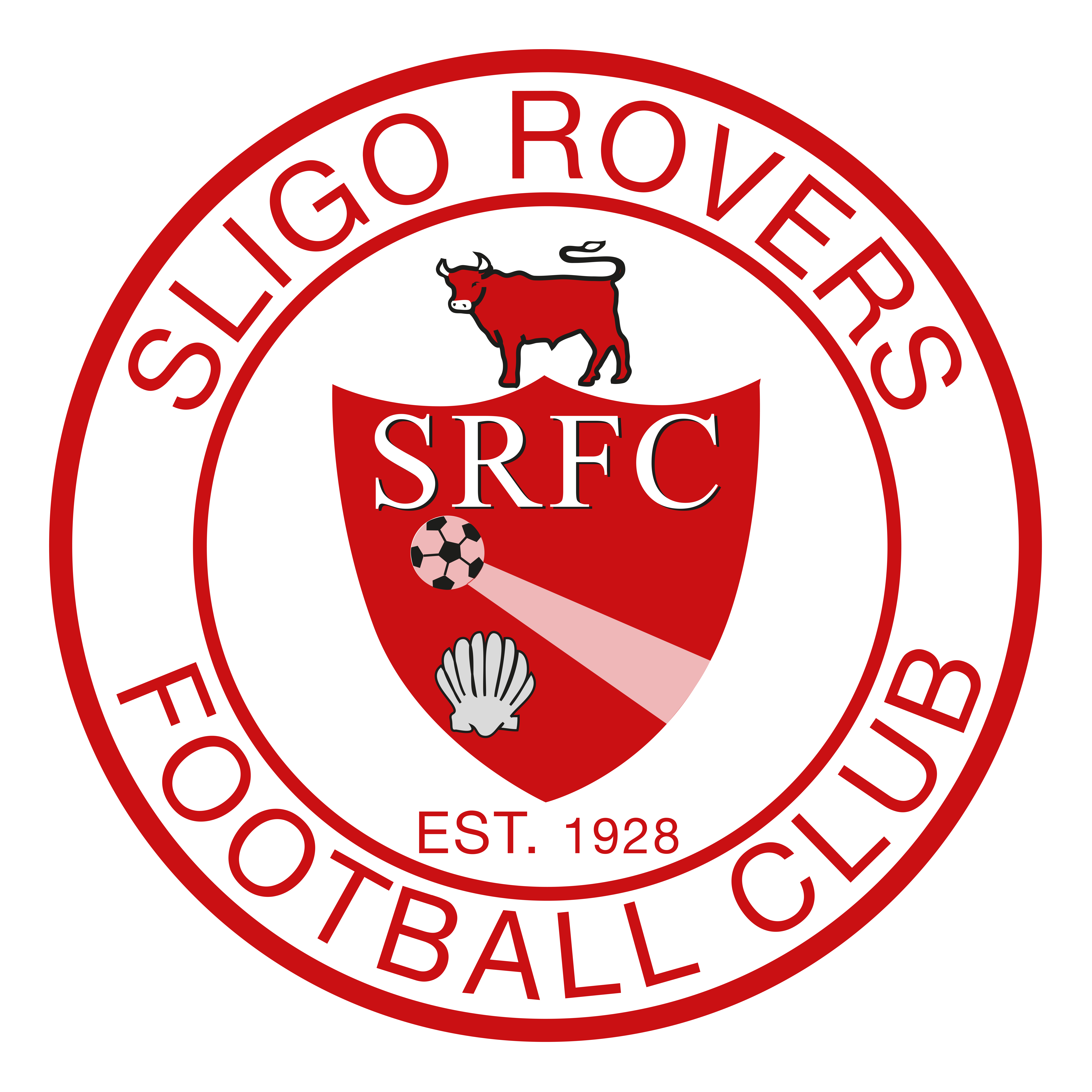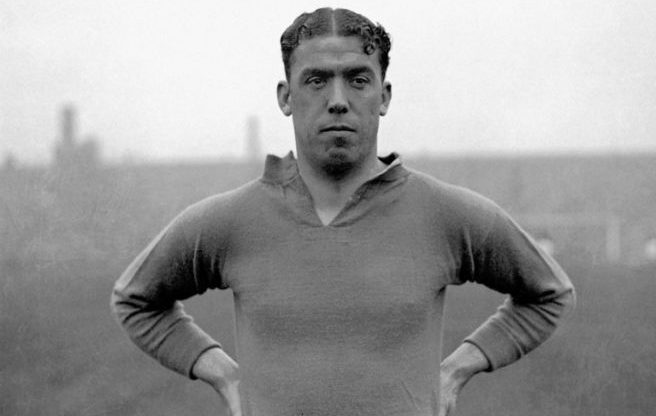Suspend reality for a moment and imagine Sligo Rovers announcing the signing of the greatest player on the planet, a world record goal-scorer, an international icon, the most famous sportsman of his era. Think Rooney, Ronaldo, even Messi, and you have the picture. Couldn’t happen, right? Except it did.
In the fabled history of a club which joyously celebrates its 90th birthday this weekend there is scarcely a more sensational, stirring, or enduring chapter than the signing by Sligo Rovers of William Ralph ‘Dixie’ Dean in January 1939.
Dixie Dean was a genuine superstar long before the term was ever invented. A goal machine who created records which still stand unchallenged, he had scored 395 goals in 447 appearances for Everton, including 37 hat-tricks, and an unimaginable 60 goals in one season. For England, he notched 18 goals in 16 caps. He won two League Championships and the FA Cup.
But for the intervention of World War 2 he would probably have been the most decorated footballer of all time.
And, amazingly, this incomparable legend finished his golden career with Sligo Rovers, helping the club to runners-up spot in both the League and FAI Cup.
Such is his legacy – the town came to a standstill as hundreds packed into Sligo Railway Station to welcome him to the club – that some 69 years later his memory is still revered by generations of Rovers’ fans.
But the town and the club also left its indelible mark on the great man himself, as his family in Liverpool still retain a special place in their hearts for the place Dixie called home for a short but unforgettable period in the months leading up to the outbreak of World War 2.
Dixie’s only daughter, Barbara, wasn’t born until six years after her dad returned from Sligo, but she fondly remembers growing up listening to his happy memories and many funny stories of his time here.
“He absolutely loved Sligo,” Barbara told us. “As a small child, I remember him telling so many great stories of his time there. He would always say how he had been treated so well by the club and the people of the town.”
The yarn he loved telling most, according to Barbara, was about the day he arrived in the town – or, more accurately, the day he didn’t arrive!
Barbara explains: “Apparently, a brass band and the Mayor and hundreds of people were at the railway station to greet the train, but dad wasn’t on it. An old man carrying a pig under his arm got off the train and somebody ruefully remarked ‘he’s not going to score too many effing goals’. They’d turned up for the wrong train.
“Dad eventually arrived the next day, and again the brass band and the Mayor and hundreds more people were there to welcome him, and this time they carried him shoulder high to the nearest pub. He loved telling that story, and you could tell he really enjoyed it.”
In all, 32 years old Dixie played 11 games for the bit’o’red, helping to steer them to a runners-up League placing and their first ever FAI Cup final, in which he scored against Shelbourne. His 10 Rovers goals included five in one game against Waterford.
Barbara is acutely aware of the impact her father had on the club.
“I think they were in deep financial trouble when he arrived and by the time he left they were in a healthy position again, so I’ like to think he played a key role in the fact that the club is now celebrating its 90th birthday. Had he not gone to Sligo way back then, who knows how things might have worked out.
“When we visited Sligo six years ago we were genuinely amazed at the affection for my dad. It was a moving and wonderful experience, so we are delighted to send our best wishes to the club and to all in Sligo on this special occasion,” she added.
Melanie Prentice is Dixie’s grand-daughter. She speaks lovingly of her famous grandad with whom she lived until his death in 1980, when she was 13 years old. She tells how his sojourn in Sligo was one of the happiest periods of his illustrious career.
She recalls: “I was very close to Dixie, having lived my childhood in his company. He was a very kind man and I genuinely think that’s why he went to Sligo. He just wanted to help out wherever he could, that was his nature.
“He loved Sligo because there was no pressure there and everyone seemed to be mad about him. He often told us how men would doff their caps in the street when he walked past. He felt like Royalty. And he loved playing golf at Rosses Point.
“He never forgot those days and often spoke fondly of Sligo and its people. One story I recall is how the club was almost broke when he arrived but had done quite well because of his presence there over the season. When he was going home, as a thank-you, one of the committee men handed him an envelope with one hundred pounds in it, which would have been quite a bit of money then. But he handed it straight back. That was the type of man he was.”
Melanie’s husband, Dave, is a sports journalist and Everton historian. Along with his wife and their two children, Daniel and Scarlett (Dixie’s great-grandchildren) and mother-in-law, Barbara, he visited Sligo in 2012, and was amazed to find the depth of affection still displayed locally for Dixie Dean.
Dave explains: “As an Everton historian, I was obviously acutely aware of the Dixie Dean legend and knew that he had finished his career in Sligo, but none of us could have imagined how strongly that legend lives on in Sligo. We were truly amazed, and deeply honoured at how wonderful the club and people in general were towards us. I kept thinking how this was the club that had given us Seamus Coleman and how his career with Everton sort of completes the circle with the Sligo connection to Dixie Dean.
“Fond memories doesn’t even begin to describe the way we were treated when we visited the town in 2012. Rovers and Sligo’s hospitality to us was absolutely incredible and I never fail to tell people what warm-hearted people you all are.
“We are delighted to send every good wish to the club on this special 90th anniversary celebration. We are proud that the memory of Dixie Dean has such a fond place in that history.”

